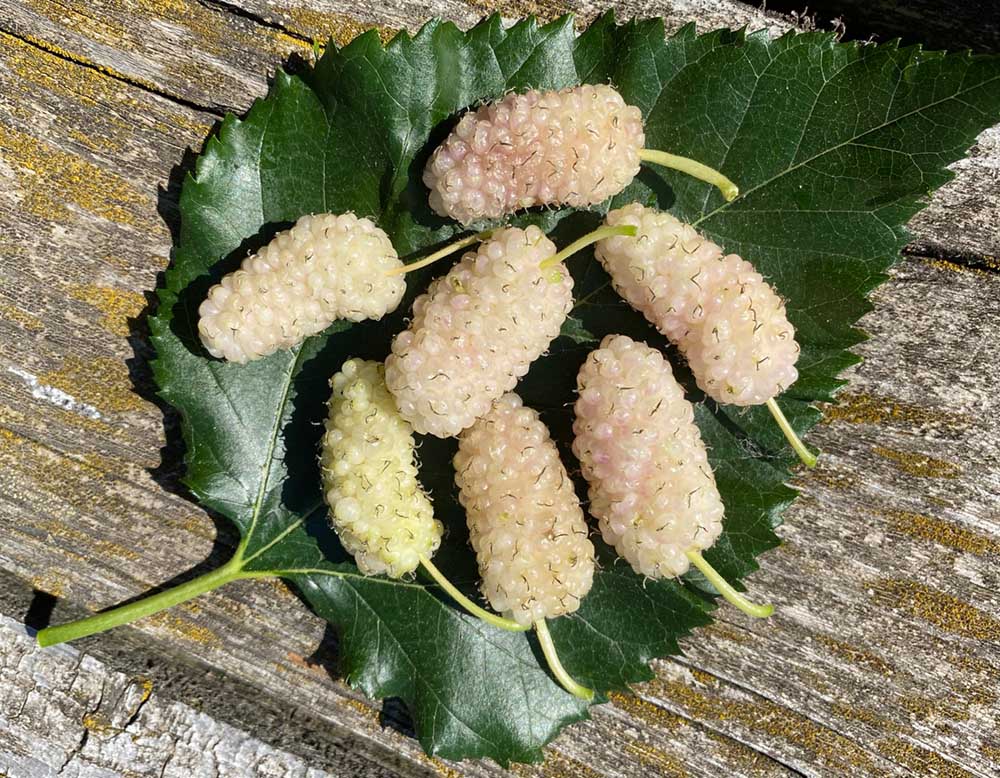-
Your shopping cart is empty!
MENU
- Soft Fruits +
- Peach +
- Apricot +
- Plum +
- Cherry +
- Pomegranate +
- Mulberry +
- Cudrania +
- Olive +
- Disease Resistant Table Grapes +
- Fig +

In recent times, there has been growing interest in the utilization of natural food sources for improving overall health and preventing chronic diseases. Mulberry fruit, scientifically known as Morus alba L., is a versatile fruit that has gained attention due to its potent bioactive components. This blog post aims to explore the diverse range of health benefits associated with mulberry fruit consumption.
Mulberry fruits are packed with various biologically active ingredients that contribute to their pharmacological activities. These include alkaloids, flavonoids, antioxidants, anthocyanins, and polyphenols. Together, these compounds exhibit numerous medicinal and therapeutic properties.
The consumption of mulberry fruits has been associated with a reduction in cholesterol levels, making them beneficial for managing cardiovascular health. The bioactive components present in mulberries help to inhibit the absorption of cholesterol and triglycerides, thus reducing the risk of heart diseases. Furthermore, studies have shown that mulberry extract can promote weight loss by regulating lipid metabolism and reducing fat tissue formation.
Mulberry fruit also demonstrates hepatoprotective effects, which means it can help protect the liver from damage. The bioactive compounds found in mulberries have been shown to possess anti-inflammatory and antioxidant properties, which contribute to liver health. These properties help mitigate oxidative stress and reduce inflammation in liver cells, thus protecting against liver damage caused by toxins, alcohol, or other factors.
Mulberry fruits have been traditionally used in Chinese and Ayurvedic medicine as a natural remedy for hypertension and diabetes. Studies have indicated that mulberry leaves and fruits possess antihypertensive properties, helping to lower blood pressure. Additionally, mulberry extracts have shown the ability to regulate blood glucose levels, making them promising for managing diabetes.
The phytochemicals in mulberry fruits, such as resveratrol, have been found to exhibit anti-tumour activities. These compounds possess antioxidant and anti-inflammatory properties that contribute to the inhibition of tumour growth and the prevention of cancer cell proliferation. While further research is required in this area, these findings highlight the potential of mulberry fruit as a natural anti-cancer agent.
Mulberry fruit consumption offers a wide array of health benefits attributed to its bioactive components, including alkaloids, flavonoids, antioxidants, anthocyanins, and polyphenols. From its anti-cholesterol and anti-obesity effects to its hepatoprotective properties and potential in managing hypertension, diabetes, and even anti-tumour activities, mulberry fruit proves to be a formidable addition to a healthy diet.
While more research is needed to fully understand the mechanisms and dosage recommendations for reaping these health benefits, incorporating mulberry fruits into your regular diet can be a natural and accessible way to support your overall well-being. Whether consumed fresh, dried, or in the form of extracts or supplements, mulberry fruits offer a delicious and nutritious option for promoting health and preventing chronic diseases.
With the growing interest in natural food sources and the demand for preventive approaches to health, the ancient wisdom of traditional medicine finds validation in the scientific exploration of bioactive components in fruits like the mulberry.